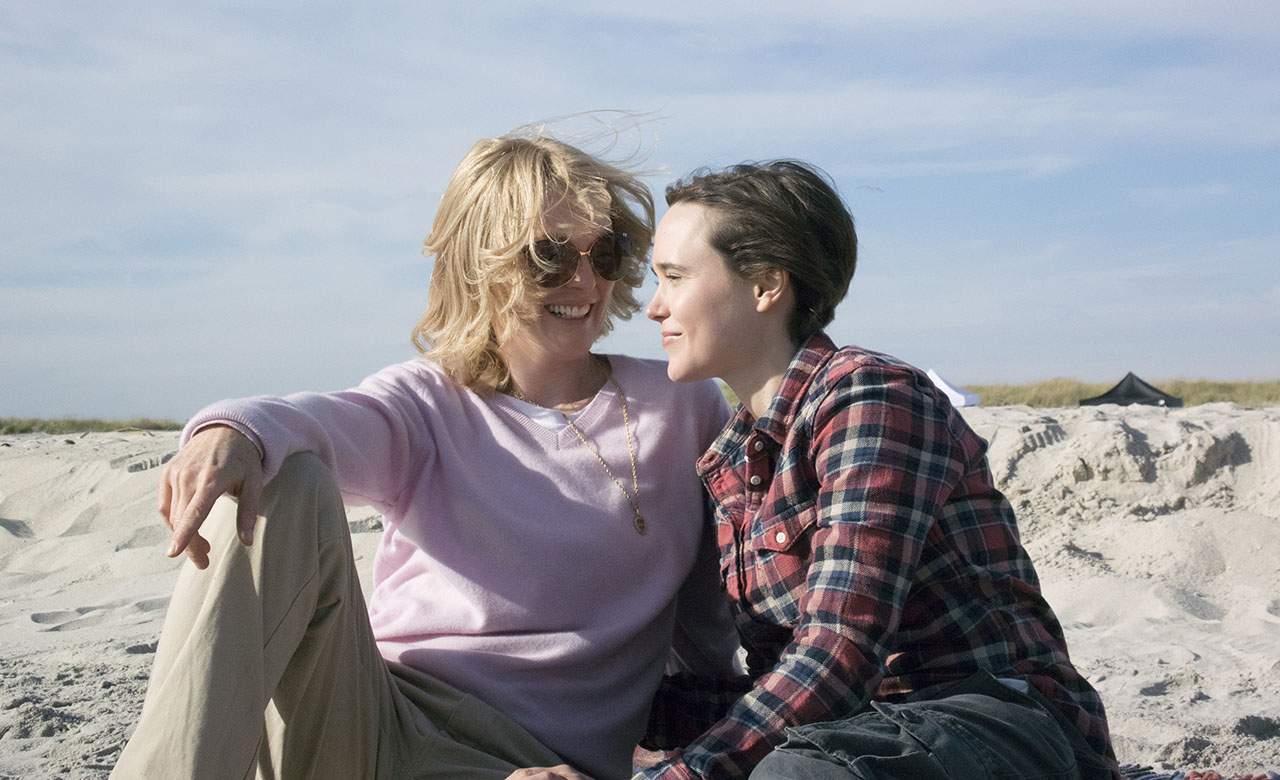Freeheld
Pushing obvious emotional buttons, Peter Sollett's film doesn't entirely do justice to Laurel and Stacie's story.
Overview
An important topic, tied into a heartbreaking plight, deserves a film that does it justice. In tackling the equality of homosexual partners through the true tale of New Jersey police detective Laurel Hester and her spouse Stacie Andree, Freeheld isn't that film. Instead, it's a feature that knows the significance of the story it's telling and the subject it's covering, but remains happy staying in movie-of-the-week territory.
When Freeheld opens, Laurel (Julianne Moore) is one of Ocean County's best cops, giving her job her all alongside fellow officer Dane Wells (Michael Shannon). She's also the type to keep her professional and personal lives separate, until an advanced lung cancer diagnosis forces her hand. Wanting to ensure that Stacie (Ellen Page) can remain in their home when she passes away, Laurel applies for her pension benefits to go to her registered domestic partner. The powers-that-be — the board of chosen freeholders, or the county governing body — decline her request, which inspires Laurel to fight for her civil rights.
Though director Peter Sollett (Nick & Norah's Infinite Playlist) and writer Ron Nyswaner (The Painted Veil) approach their topic with noble intentions and an obvious, earnest dose of sincerity, there's a difference between being sympathetic and being simplistic — and sadly, their efforts strive for the former but side with the latter. Even with a legal fight at the centre of the narrative, there are few complications in Freeheld, and those that exist are designed to push emotional buttons.
As a result, the script cycles through a checklist of the expected elements — hospital scenes, unsupportive colleagues, courtroom arguments and an ambitious activist lawyer (Steve Carell) among them — with little in the way of nuance. Audiences aren't ever in the dark about what they're supposed to be feeling, given that the film's soft tones offer a visual reminder of the gently moving territory it's trying to play in. Of course, Freeheld's generic air and approach isn't really conducive to wringing tears out of viewers, although that's what it is clearly trying to do — and what an account of the real-life circumstances should result in.
Thankfully, the bulk of the cast fares better. Moore might remain in the same illness-centric territory that won her an Oscar this year for Still Alice, but in early scenes that show the way Laurel has to manage the different parts of her life, she makes the character more than a beacon for a cause. Page makes the most of a smaller part, even though she's very much the supporting player. In fact, she is often overshadowed by the excellent Shannon in a much quieter turn than he's frequently asked to give, and who becomes the feature's preferred point of focus.
That's yet another of the odd choices Freeheld makes in its unsatisfying attempt to bring Laurel and Stacie's story to the screen, in an effort that has its heart in the right place, but not much else. For those looking for a film that actually does their tale justice, the short, Academy Award-winning 2007 documentary of the same is a much better choice, with fact winning out over a sentimental, dramatic version.






